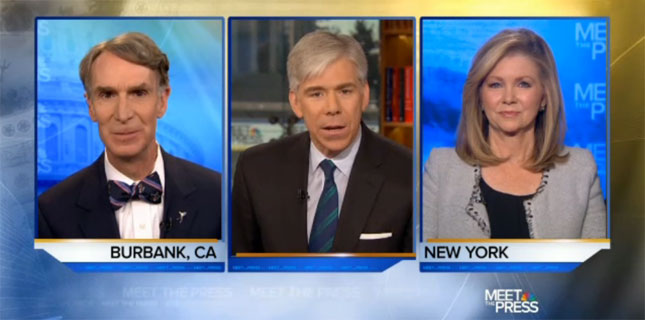Sunday Shows’ Climate Coverage Shows Media Vulnerability
< < Go Back
This week, all four major broadcast networks covered extreme weather and climate change on their Sunday morning political talk shows. Those programs have largely ignored global warming in recent years, making their effort to address the issue unusual and laudable. But several of the segments also demonstrated the vulnerability inherent in treating science as a political debate where both sides receive a platform to air their positions.
Major winter storms across the U.S. in the month of February, drought in California, and President Obama’s call for a $1 billion climate change “resilience fund” sparked debates this week over the need for action against climate change. The science of global warming is settled: according to one survey, 97 percent of climate scientists agree that climate change is real and that “humans are causing global warming.” But the Sunday shows, because they are built on a model of showing political conflicts, have difficulty putting that fact in context.
NBC’s Meet the Press also devoted a full segment to climate change, which featured science educator Bill Nye and Rep. Marsha Blackburn (R-TN), who denies the scientific consensus on global warming.
Host David Gregory opened the segment by stating that the consensus within the scientific community is that climate change is real and caused by humans, and repeatedly refuted Blackburn’s claims to the contrary. But because NBC was hosting a climate change denier, the format of the discussion ensured that false claims would enter the debate. Blackburn claimed that “there is not agreement around the fact of exactly what is causing” climate change, said that any increase in carbon in the atmosphere is “very slight,” and claimed that “there is not consensus” on climate change among the scientific community. Nye pushed back, citing “overwhelming evidence that the climate is changing. That you cannot tie any one event to that is not the same as doubt about the whole thing.”
More From Media Matters:




